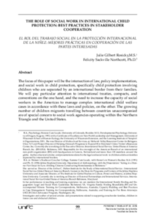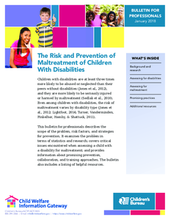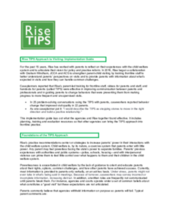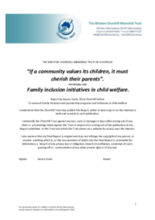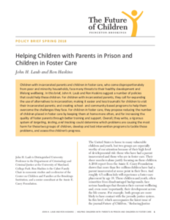Displaying 1441 - 1450 of 2176
The number of children in the US removed from their homes by child welfare agencies due to a parent's disability has been on the rise in the United States in recent years, according to this article from the Pacific Standard.
The focus of this paper will be the intersection of law, policy implementation, and social work in child protection, specifically child protection involving children who are separated by an international border from their families.
Children with disabilities are at least three times more likely to be abused or neglected than their peers without disabilities, and they are more likely to be seriously injured or harmed by maltreatment. This bulletin describes the scope of the problem, risk factors, and strategies for prevention.
This implementation guide lays out what New York City child welfare agencies and Rise together found effective in strengthening parent-child visiting by training frontline staff and providing more information to parents. The guide includes planning, training and evaluation resources so that other agencies can bring the TIPS approach into frontline practice.
This Churchill Fellowship has explored family inclusion initiatives in the USA, Canada, Norway and the UK and has found that family inclusion is a pathway to better outcomes for children and young people including restoration and permanency.
The Nourished and Thriving Children toolkit was designed by SPOON to build capacity among the foster care community in feeding and nutrition topics so that they are equipped to address challenges commonly experienced by foster children.
In this brief, John H. Laub and Ron Haskins suggest a number of policies that could help children with incarcerated parents and children in foster care.
This video from Rise Magazine features tips from parents who have had their children placed in foster care in the U.S. to other parents in the same situation on how to handle visits with their children in the care system.
This video from Rise Magazine is designed to include in training for caseworkers, visit coaches, parent advocates and other frontline staff who will supervise or support parents during visits with children in foster care.
This pilot study reports the baseline data of a prospective longitudinal study examining the educational achievements of grandchildren being raised by grandparents in parent absent homes.

